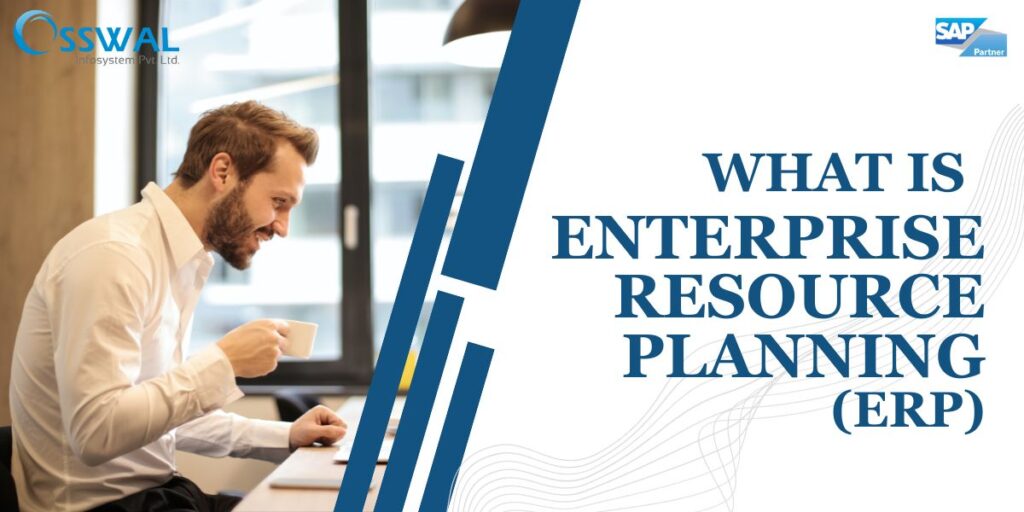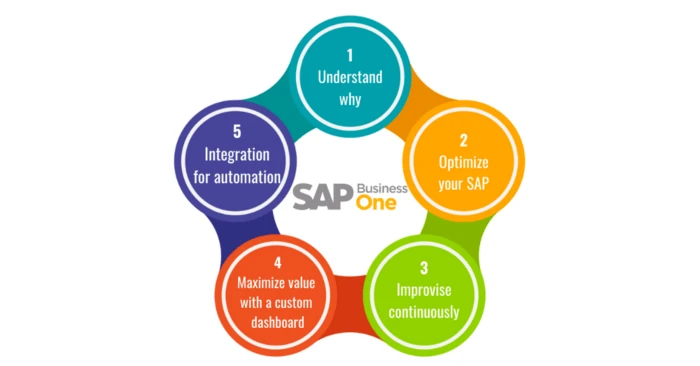In today’s fast-paced business world, all businesses, regardless of size, are constantly searching for ways to boost productivity, simplify operations, and make data-driven decisions. Enterprise resource planning (ERP) software is a powerful tool that complies with these demands. The definition of ERP, the situation of ERP software in India, and the price of ERP software will all be covered in this blog.
Understanding ERP: The Backbone of Modern Business
Enterprise Resource Planning (ERP) is a holistic approach to managing various aspects of a business. It integrates a range of functions, including finance, human resources, procurement, inventory, production, and sales, into a single software platform. The primary goal of ERP is to enable seamless data flow between different departments, provide real-time information, and foster collaboration.
The Core Components of ERP
ERP software comprises several essential components:
Financial Management: This module manages accounting, budgeting, and financial reporting, helping organizations make sound financial decisions.
Human Resources: HR modules handle employee data, payroll, and workforce planning, facilitating talent management.
Inventory Management: These modules optimize inventory control, ensuring that products are available when needed without overstocking.
Procurement and Supply Chain Management: ERP streamlines the procurement process, manages suppliers, and ensures timely deliveries.
Production and Manufacturing: These modules help organizations control and enhance production processes, leading to higher efficiency and lower costs.
Sales and Customer Relationship Management (CRM): ERP supports sales teams by managing leads, tracking sales, and providing tools for improving customer relationships.
ERP Software in India: A Growing Trend
The corporate environment in India has expanded significantly in the last several years, and ERP software is essential for streamlining operations. ERP is being used by a lot of Indian companies to increase their competitiveness in the international market. Numerous manufacturers in India offer ERP software that is suited to the particular requirements of Indian companies. The advantages of implementing ERP software in India include:
Increased Efficiency: ERP streamlines processes, reducing manual effort and human errors, and ultimately improving productivity.
Data Security: ERP systems ensure that sensitive business data is kept secure, which is crucial in a data-driven era.
Compliance: Indian businesses must adhere to various regulatory requirements, and ERP systems can help ensure compliance with tax and other regulations.
Scalability: ERP systems are easily scalable to meet growing data and user requirements as firms expand.
Improved Decision-Making: ERP facilitates improved decision-making by offering real-time insights via data analytics.
The Cost Issue with ERP Software
Depending on the seller, the product’s sophistication, and the extent of deployment, the price of ERP software can vary greatly. There are two primary models for pricing ERP:
Unending Licencing: Under this approach, you buy a license upfront that gives you unlimited access to the program. But you could also have to pay for yearly support and upkeep.
Subscription (SaaS) Model: In this cloud-based model, you can access the software by paying a monthly or yearly charge. Cost predictability is increased because maintenance and support are frequently included.
The cost of ERP software in India varies based on the complexity and functionality needed, from a few thousand dollars for small firms to millions for huge corporations. ERP systems may dramatically boost productivity, save operating expenses, and boost profitability; thus, the price should be seen as an investment in the long-term health of the company.
To sum up, ERP software is a game-changing instrument that is now required for companies both in India and beyond. It provides a broad range of features that help businesses make data-driven decisions and optimize their operations. The long-term advantages of putting in place an ERP system make it a prudent investment for any company hoping to prosper in the contemporary period, even though ERP pricing can vary.



